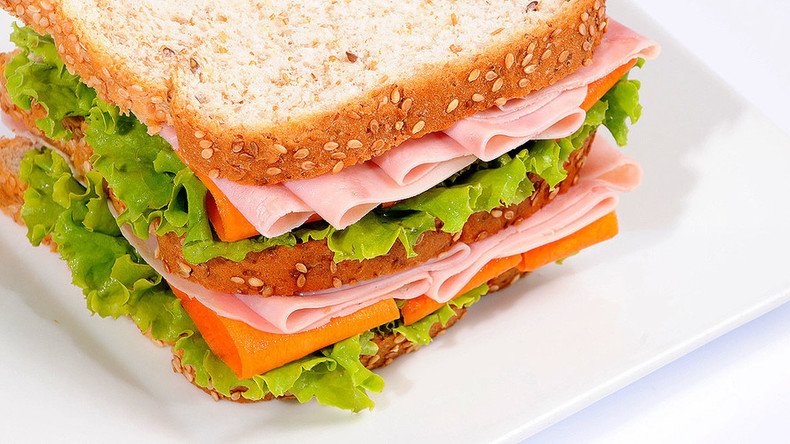Pass the salt: FDA battles high sodium levels in Americans’ diet

US government regulators are urging restaurants and food companies to cut down on sodium, arguing the move will save hundreds of thousands of lives. The new guidelines on cutting the salt are non-binding, however.
Every day in the US, people consume on average 3,400 milligrams of sodium, which is nearly 50 percent more than the 2,300mg limit recommended by the Food and Drug Administration (FDA). Such high intake is directly contributing to heart diseases and strokes, prematurely killing people across the country, the regulators say.
“The science supporting the relationship between sodium reduction and health is clear: When sodium intake increases, blood pressure increases, and high blood pressure is a major risk factor for heart disease and stroke – two leading causes of death in the US,” the FDA said Wednesday.
What the heck does ‘natural’ food mean, anyway? Tell the FDA https://t.co/LsjZjHZoszpic.twitter.com/A24px1bCSF
— RT (@RT_com) May 8, 2016
High blood pressure affects about a third of Americans and about 50 percent of African Americans. Among children, one in 10 is diagnosed with high blood pressure.
Up to 75 percent of sodium that ends up on the plates of unsuspecting Americans comes from processed and prepared foods.
The agency has divided the affected food into 16 overarching categories and 150 subcategories, including sauces and dressings that come separate, with individual targets. Each will have different sodium targets, both short-term and long-term.
The FDA is taking a two-tiered approach to reach its goal, where short-term is two years and long-term is 10 years.
“Based on estimates using National Health and Nutrition Examination Survey (NHANES) data, if the food industry adjusts sodium levels in food based on FDA’s targets, we expect the short-term (2 year) targets for sodium content in food would reduce sodium consumption to about 3,000 mg per day, and that the long-term (10 year) targets would reduce sodium consumption to about 2,300 mg per day,” the regulator said in its new guidelines.
FDA moves to regulate E-cigarettes for first time, ban sales to minors https://t.co/xMgJpfoJKzpic.twitter.com/kTxPSMKBit
— RT America (@RT_America) May 5, 2016
Many food companies have already reduced salt in their products, but sodium content of the food supply is still quite high, the FDA said.
In 2010, Campbell Soup Company said it would reduce the sodium content in 23 of its soups from 800mg to 480mg per serving. However, the following year the company linked its sales sliding to lower salt levels and said it would be putting some salt back in – up to about 650mg per serving, which is still less than the original amount.
FDA sued over approval of genetically engineered ‘#frankenfish’ https://t.co/78pljPK7hP#GMOspic.twitter.com/FiSMSMOpUG
— RT America (@RT_America) April 1, 2016
Faced with pressure to cut salt from the Department of Agriculture’s 2011 Dietary Guidelines, a total of 16 companies – including Kraft Foods, Heinz and Unilever – joined the National Salt Reduction Initiative (NSRI). Its main goal was to reduce sodium levels in retail and food service across the US by 20 percent in five years.
“Scientifically rigorous studies consistently find that lowering sodium reduces both blood pressure and cardiovascular disease,” Thomas Frieden, the director of the federal Centers for Disease Control and Prevention (CDC), told reporters. “No other intervention would have as large a benefit for so many people. Even modest reductions in sodium will have substantial benefits.”












